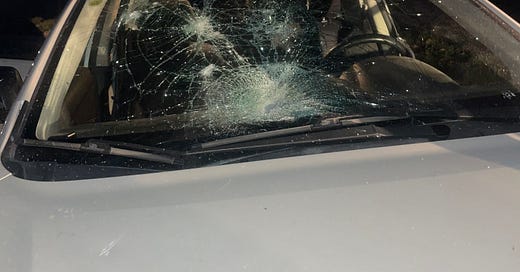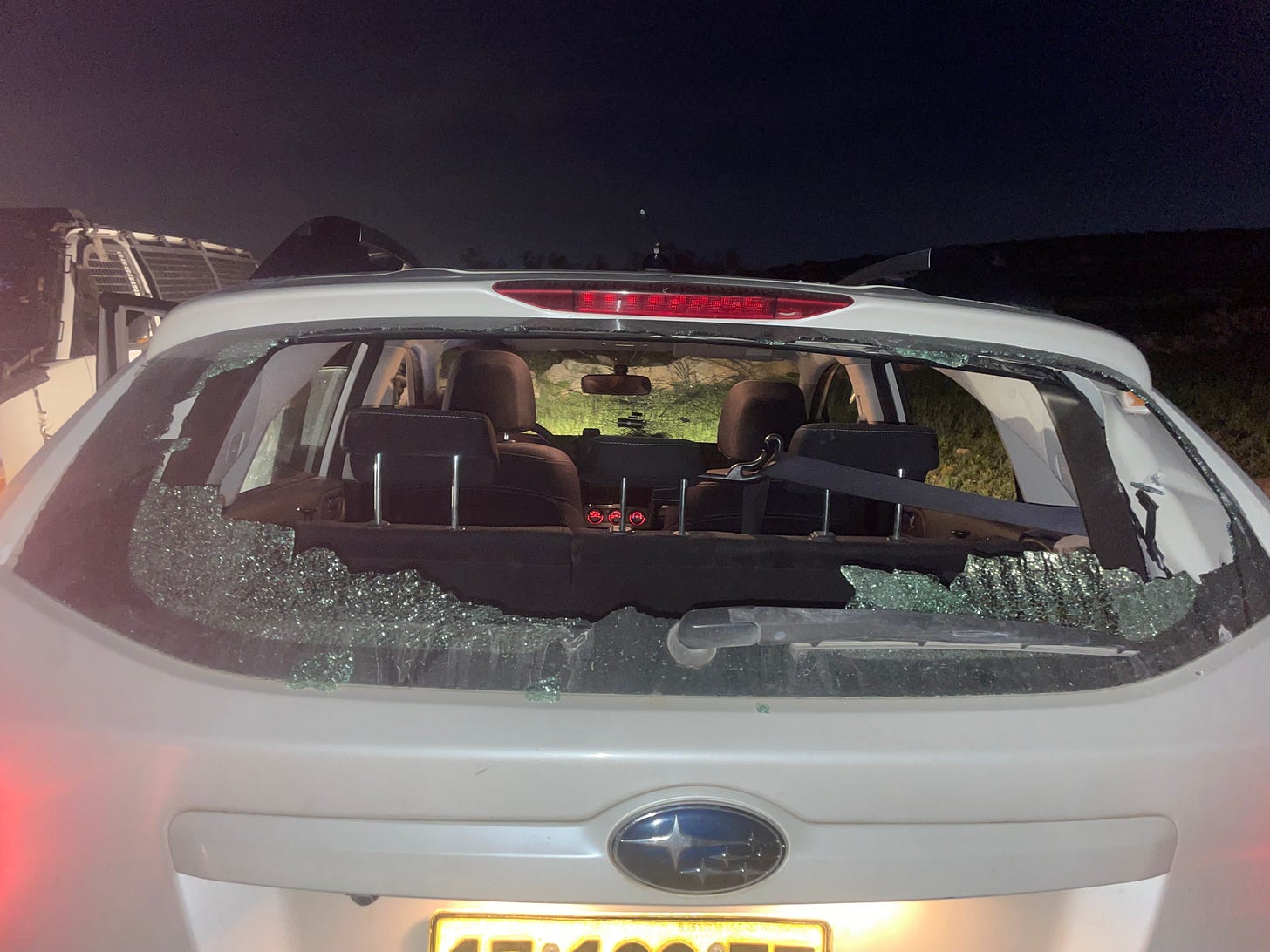In hip hop culture there is a strong discourse about being ‘hard’. Being strong and brave, not out of luck, but due to a life of hardship. In North America, adherents of this culture pride themselves on being ‘straight from the streets’ or ‘street smart’. This pride, while sometimes misplaced or glorified, is a response to growing up under conditions of scarcity and uncertainty. These conditions make young people grow old and unenchanted long before legal adulthood.
K’naan, a Canadian rapper who is a Somalian refugee, has a song called TIA (This is Africa) that I used to listen to on repeat as a teenager. In this song, he pokes fun at gangster rappers like 50 cent and Jay Z. “Oh you from the hood?” He rhymes, before describing what it is like to live in a militarized, third world country to his largely American audience.
He raps about living conditions that I have never truly witnessed or experienced before coming to this land. In my youth, we occasionally came into contact with handguns. Pilfered from homes or passed on through friends of friends, these weapons made my peers feel strong and powerful. Despite this, guns, like most of our childhood shenanigans, were kept hidden from most eyes. We understood that even though the engaged in fights and stealing, that we could get in trouble for these things. That they were bad, dangerous, and illegal. That we were transgressing when we engaged in activities that made us feel ‘hard’ and ‘gangster’.
In the Wild West Bank, Jewish teenagers walk around with knives, bats, rocks, and sometimes even guns in a way that at once speaks to state-sanctioning and statelessness. The men proudly don machine guns with a surly bravado. In the Wild West Bank, Palestinian children learn early about what it means to be tough and ‘street smart’.
While none of these children have ever been mugged on a dark street at night, they have spent their entire lives being physically, verbally, emotionally, and legally abused by an enemy that seems to play by whatever rules they deem fit. Palestinians have never even gotten a rule book. I see ten year olds who direct the younger children and follow around the shebab (young men) as though they have witnessed things that have hardened them far beyond their years. I have watched little girls giggle with eachother about who can stand closer to the soldiers.
This week, several Palestinians from my village were attacked and arrested, including the Academy Award winning director of No Other Land, Hamdan. Myself and four other activists were also attacked by settlers. If you live under a rock and this is your first time hearing about this, the event gained massive media attention and the video I recorded during the incident went viral and my mama saw in on Seattle news.
My first reaction to seeing this video is cringing at the sound of my voice. At the fear and uncertainty so apparent in my speech. The world has officially witnessed what I’m like when I think out loud. After I ran back to the car, settlers, who mind you are often teenage boys, completely smashed the car window next to me. Like Hamdan said in his interviews, I too thought I might die in this moment, or at least receive a serious head wound. Somehow still filming on my phone (thanks CJNV for the training), I covered my head with my hands and tried to crouch below the level of the open window where rocks, sticks, and hands had easy access to me.
I am thinking about movies and television shows that I’ve seen where people crouch in the backseat of cars to avoid oncoming bullets. This is all I am thinking about until I hear a new set of voices yelling. I look up and see two men running towards me fast, shouting in a foreign language. This is it, I thought. There is no way I will withstand the beating of these men. Then, I look up and suddenly make out a face that I’ve seen all over the New York Times and ABC Network. Basel Adra, the other Palestinian Academy award winning director of No Other Land is the one running and shouting. My village host and OG activist, Nasser, is running behind him.
Earlier that day, myself and Nasser had been running through a village who’s name I do not even know. Trying to keep up with this man a decade older than me, I scrambled down hills and over boulders while praying I wouldn’t lose my footing. My lungs could not keep up but they had no choice, two Palestinians nearby had been beaten and then locked in their home by settlers and we needed to respond fast. Like always, myself and the other activists filmed, documented, and tried to keep up with our Palestinian counterparts.
This incident was particularly upsetting because of being locked in the home. Beatings are common, but this was new. As we arrived, two of my fellow activists got out of the car to observe as a nearby settler who was drafted into the reserve military after Oct 7, 2023 threatened him for driving a illegal car, or mashtouba as they are called here. With the price of buying a vehicle exorbidant because of both Israeli and Palestinian taxes that must be paid, in addition to the likelihood of the car being destroyed by settlers, many Palestinians drive cars that have been taken off the road by Israel and then enter the black market.
In between this incident and the now famous one, my group had been invited for Iftar at a Palestinian activist’s house in another village. As we waited for the call to prayer in order to break the fast, we joked around and made Qatayef. Literally as soon as we were about to eat, the call came in to respond to the next incident. As we talked out the plan and who would respond, I popped two olives and drank a cup of juice.
I am really happy that Hamdan’s attack and abduction received so much media coverage. Even places like TMZ and IMDB shared about the attack. Mark fucking Ruffalo called for the Academy Awards to release a statement. Rumour is that they might. The next two days were more of a blur as myself and the four activists as well as the famous directors and the head of the village council did interview after interview. The goal is always to bring global attention to what it is like here. To have eyes on Masafer Yatta. To support the residents as they try to save Masafer Yatta.
By Thursday, most of the journalists were gone. They got their story. I suppose in some ways, I got my story too. This morning, in the village of Jinba, another pogrom occurred. This time, five Palestinians were injured and taken to the hospital. When I first heard (I am away this weekend, Baruch Hashem) I first thought to check the news. Maybe something was posted. Maybe NPR was still interested?
But I stopped myself. Of course this attack, the attack hours before Hamdan’s, and every other attack I’ve witnessed in my time here has not made global news. It feels like a huge privilege for me to know Hamdan. Aside from his really fancy trophy that I hope he will let me hold one day, he is a really fantastic person. With a dry wit and a mischievous sparkle in his eyes, one might at first miss his soft side. But as the father of two young kids and a leader in Susya, his life is nothing but community care.
Does a Palestinian need to be an Academy Award winner to have the world see their suffering and feel outrage? I don’t think Hamdan and Basel would want it this way. But I suspect that they, like me, wish to use whatever means and whatever platform they may have to share about what is happening to their people. Perhaps they, like me, do not wish for the spotlight, but know it must be used when it shines on us.
I am not upset about my attack. But I am upset when I think about how the amazing people who have welcomed me into their homes and lives must endure this all the time. I keep thinking to myself: this could not happen to better people. You will never know about Hamdan’s neighbours the way you know about Hamdan. For many, they would not feel comfortable telling strangers about their lives. For others, they will never have the reach that Hamdan and Basel have.
You will never know about the attack on the five residents of Jinba that you know about the attack on the three residents of Susya. This is the way the world works, and you either play the game or you lose. But, despite this, I want you to know that each one of them is a beautiful human. They have a family and a community that they love and care for. They have likes, dislikes, dreams, and annoying habits, just like you. They deserve more. They deserve humanity and safety. The Torah tells us: justice, justice you must pursue. So please, pursue it for the people of Masafer Yatta. They deserve nothing less from us.







A beautiful and heartbreaking read.